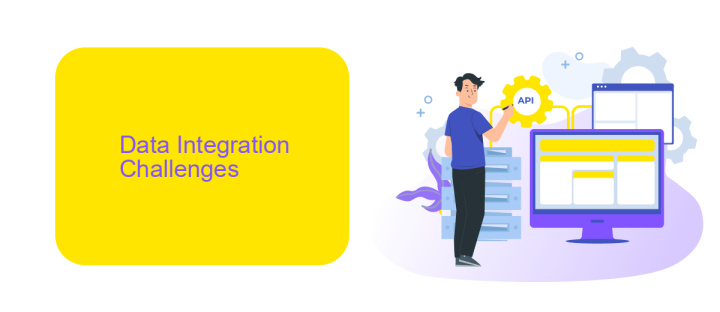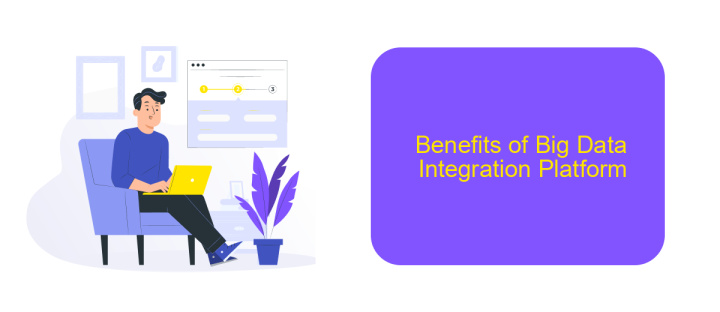Big Data Integration Platform
In today's data-driven world, organizations are inundated with vast amounts of information from diverse sources. A Big Data Integration Platform serves as a crucial tool to consolidate, manage, and analyze these data streams efficiently. By providing seamless integration and real-time processing capabilities, such platforms empower businesses to make informed decisions, drive innovation, and maintain a competitive edge in the market.
Introduction
Big Data Integration Platforms are essential tools for organizations looking to harness the power of large datasets. These platforms enable seamless integration, processing, and analysis of data from various sources, providing valuable insights that drive business decisions.
- Data Collection: Aggregates data from multiple sources.
- Data Transformation: Converts data into a usable format.
- Data Storage: Efficiently stores large volumes of data.
- Data Analysis: Provides tools for in-depth analysis.
- Data Visualization: Offers visual representation of data insights.
One such service that simplifies the integration process is ApiX-Drive. This platform allows businesses to automate data workflows by connecting various applications and services. By using ApiX-Drive, organizations can streamline their data integration processes, ensuring that data is consistently up-to-date and readily available for analysis. This enhances decision-making capabilities and operational efficiency.
Data Integration Challenges

One of the primary challenges in data integration is dealing with the sheer volume and variety of data from multiple sources. Different data formats, structures, and protocols can make it difficult to consolidate information into a single, coherent dataset. Additionally, ensuring data quality and consistency across diverse systems is a complex task that requires robust validation and cleansing processes. Without addressing these issues, integrated data can lead to inaccurate insights and poor decision-making.
Another significant challenge is the integration of real-time data streams, which necessitates advanced technologies and solutions to handle continuous data flow efficiently. Tools like ApiX-Drive can simplify this process by offering pre-built connectors and automation capabilities, allowing seamless integration of various data sources without extensive manual intervention. This not only saves time but also reduces the likelihood of errors, ensuring that integrated data is both timely and reliable. However, selecting the right tools and configuring them correctly remains a critical step in overcoming data integration hurdles.
Big Data Integration Platform Architecture

The architecture of a Big Data Integration Platform is designed to efficiently handle and process large volumes of data from various sources. It typically comprises several key components that work in unison to ensure seamless data integration, transformation, and analysis.
- Data Ingestion Layer: This layer is responsible for collecting data from multiple sources, including databases, APIs, and streaming services.
- Data Storage Layer: Once ingested, the data is stored in a scalable and high-performance storage solution such as Hadoop HDFS or a cloud-based data lake.
- Data Processing Layer: This layer processes the raw data using distributed computing frameworks like Apache Spark or Flink.
- Data Integration Services: Tools like ApiX-Drive facilitate the seamless integration of various data sources, automating workflows and ensuring data consistency.
- Data Access Layer: Provides interfaces for querying and analyzing the integrated data using tools like SQL engines, BI tools, and custom applications.
Effective architecture ensures that the platform is scalable, fault-tolerant, and capable of real-time data processing. By integrating services like ApiX-Drive, organizations can automate data workflows, reduce manual intervention, and enhance overall data management efficiency.
Benefits of Big Data Integration Platform

Integrating Big Data platforms into a business ecosystem offers numerous advantages, enhancing operational efficiency and decision-making processes. These platforms enable organizations to seamlessly combine data from various sources, providing a unified view that drives actionable insights.
One of the key benefits is the ability to manage and analyze vast amounts of data in real-time. This capability allows businesses to respond swiftly to market changes and customer demands, ensuring a competitive edge. Additionally, platforms like ApiX-Drive simplify the integration process by automating data workflows, reducing the need for extensive manual intervention.
- Enhanced data accuracy and consistency
- Improved decision-making with comprehensive data insights
- Cost savings through optimized resource utilization
- Scalability to accommodate growing data volumes
- Streamlined operations with automated data integration
In conclusion, leveraging a Big Data Integration Platform is crucial for modern businesses aiming to harness the full potential of their data. By utilizing tools like ApiX-Drive, companies can ensure seamless data flow and gain valuable insights, ultimately driving growth and innovation.


Conclusion
In conclusion, the integration of Big Data platforms is essential for organizations aiming to harness the full potential of their data assets. By effectively combining various data sources, businesses can achieve a more comprehensive view of their operations, enabling better decision-making and enhanced performance. The use of advanced integration tools and platforms, such as ApiX-Drive, simplifies the process, ensuring seamless data flow and real-time synchronization across different systems.
Moreover, adopting a robust Big Data integration strategy can lead to significant improvements in data quality and consistency. This not only enhances operational efficiency but also provides valuable insights that drive innovation and competitive advantage. As the landscape of data continues to evolve, leveraging platforms like ApiX-Drive will be crucial for organizations to stay ahead, ensuring they can efficiently manage and utilize their data resources to their fullest potential.
FAQ
What is a Big Data Integration Platform?
Why is data integration important for businesses?
How can I automate data integration processes?
What challenges might I face when integrating big data?
How can ApiX-Drive help with data integration?
Time is the most valuable resource in today's business realities. By eliminating the routine from work processes, you will get more opportunities to implement the most daring plans and ideas. Choose – you can continue to waste time, money and nerves on inefficient solutions, or you can use ApiX-Drive, automating work processes and achieving results with minimal investment of money, effort and human resources.

